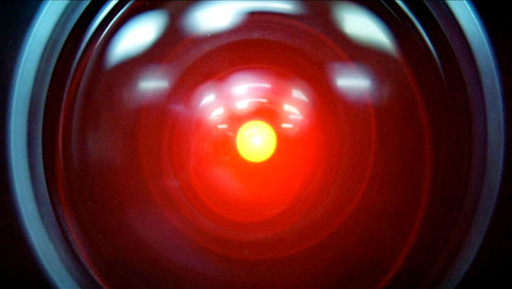Week 2: Assuming AI is possible, what happens next?
Introduction
The HAL 9000 from Stanley Kubrick’s film 2001: A Space Odyssey is perhaps an archetype of the super-intelligent AI that becomes a threat to the humans that depend on it. Yet, watching a film like this, one could nevertheless breathe a sigh of relief knowing that such a nightmare scenario is still thankfully a long way off, if even possible at all.
However, there are increasing calls within government, industry and academia for greater caution in the adoption of AI technology. These calls are typically objective and clear-headed about the risks and benefits of such technology and are starkly different to the more exaggerated reports in the popular news and other media about existential threats to humanity. There is, however, a common concern across all of these different voices, which could be summed up in the following way using a form of ‘what if’ question: What if we were successful in building AI technology that was intelligent enough to replace humans in a wide range of everyday tasks? And this can be immediately followed up with: How should we prepare for such a scenario?
This second week of the course starts by exploring this ‘what if’ question, and then moves on to examine some of the concrete implications of a world where such technology exists alongside us, part of our online but also concrete, real world experiences. Some of this technology either already exists in some form or other, or may turn up in the very near future, ranging from self-driving cars, to care robots that support people in assisted living, to systems that automate how we interact with banking and financial systems, or even virtual online assistants within a range of sectors including hospitality, retail and professional services. Assuming that AI technology advances to this point, it raises a host of concerns about the sorts of behaviours we would want such technology to exhibit. This week will directly address challenging issues such as diversity, equitability and fairness, as well as sustainability. To balance things, and so that you don’t only hear about where things can go wrong, you will also see some examples of the benefits of such technology, and hear about some of the work within the ‘AI for good’ movement.

